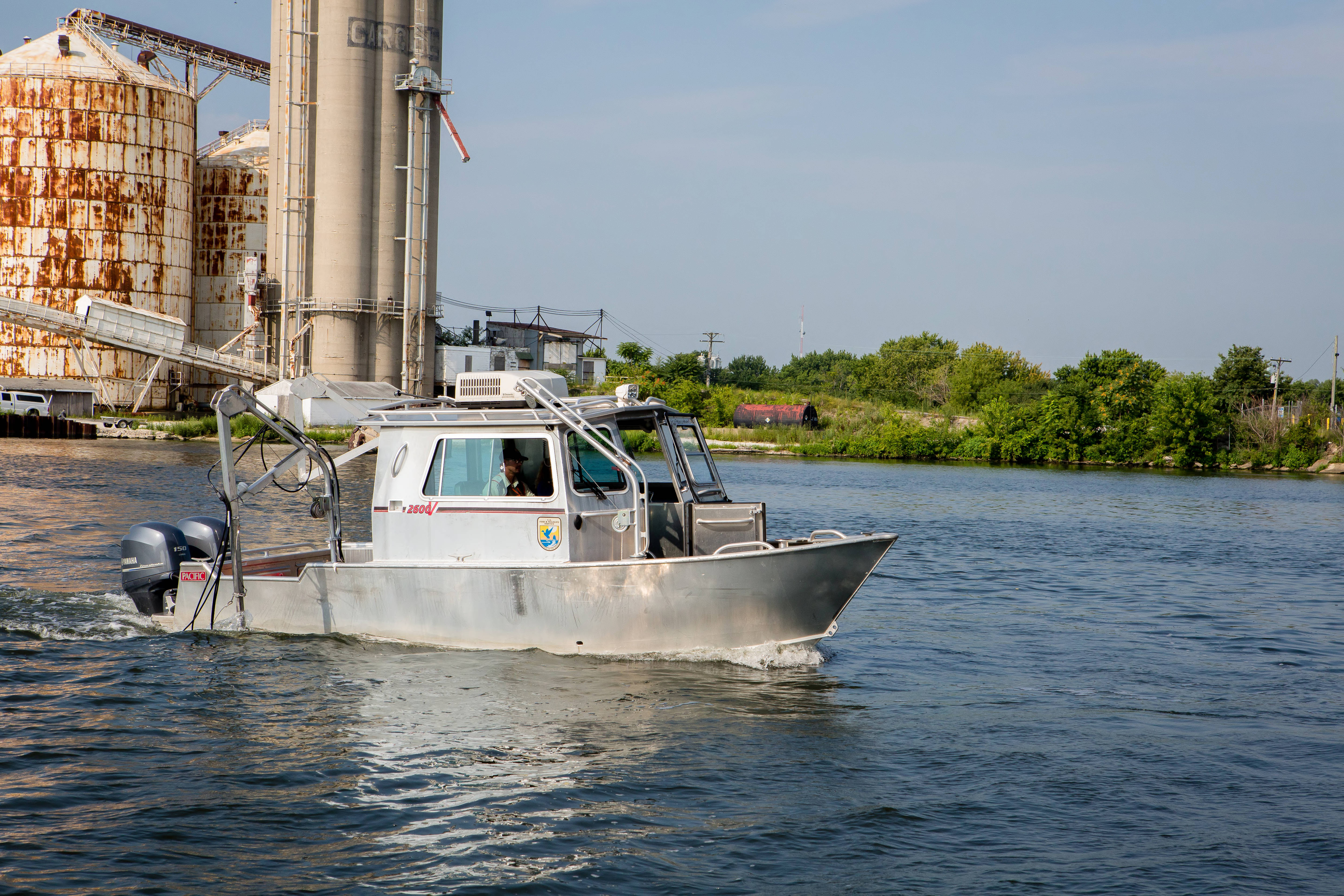Funds Approved for Wetland Conservation
The Migratory Bird Conservation Commission, chaired by Secretary Bernhardt, approved more than $130 million in public and private funding for various wetland conservation projects on Sept. 10. The Fish and Wildlife Service (USFWS) and its partners will use the funds to conserve or restore more than 157,000 acres of wetland and associated upland habitats for waterfowl, shorebirds and other birds in 21 states throughout the U.S. Since the Commission’s establishment, over 5.6 million acres have been acquired by fee purchase, easement, or lease with monies from the Migratory Bird Conservation Fund.

In late 2012 the Carterville FWCO was approved to build a new sonar survey boat to aid in the fight against Asian carp. The “Carpe See-um” actively scanning a portion of the Chicago Sanitary and Ship Canal with split-beam and side-scan sonars. Photo by Ryan Hagerty, USFWS
Plans to Combat Invasive Species
In August, the Trump Administration released a draft strategic plan for combating an estimated $120 billion problem—invasive species. The Administration has taken significant actions to more effectively manage invasive species, which impact water supplies, impair hunting and fishing opportunities, interfere with energy production, exacerbate wildfires, damage America’s agriculture and drive native species to extinction. The plan utilizes a science-based approach while working closely with federal, state, local and Tribal partners around the nation to prevent, contain and control invasive species that damage our landscapes. Some of the targeted invasive species include Asian carp in the Great Lakes region, Burmese pythons in the Everglades, zebra mussels in the western U.S. and brown tree snakes in Guam.
Conservation Success Stories
Some notable conservation success stories since 2017 include species such as the Borax Lake chub in Oregon, the lesser long-nosed bat in Texas, Kirtland’s warbler found in Michigan and Wisconsin, and the black-capped vireo found in Oklahoma, Texas and Mexico. Downlistings from endangered to threatened include Florida’s manatee, the Hawaiian goose in Hawaii, and the Kuenzler hedgehog cactus found in New Mexico, Arizona, Texas and Colorado. The Service prides itself on conservation success stories like this and continues to work in partnership with a diverse array of stakeholders around the world, using sound science to identify and address the specific needs of species. Source: Department of Interior
